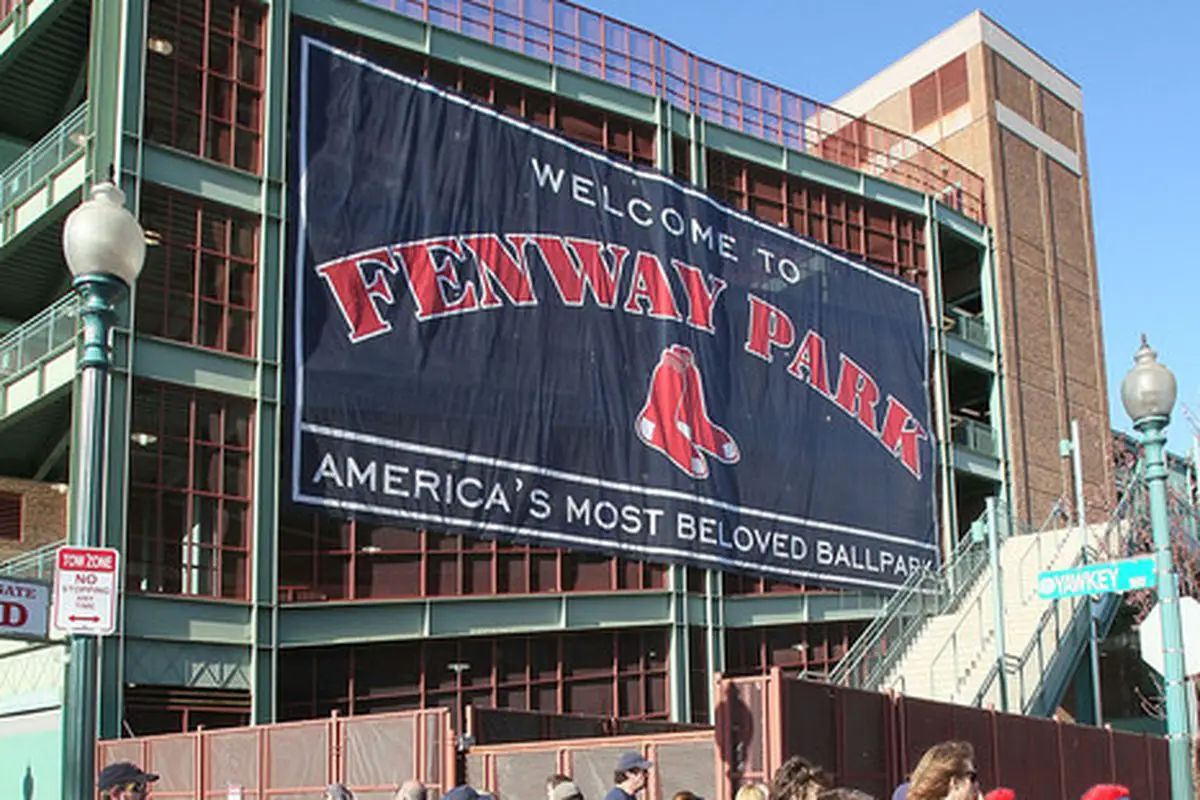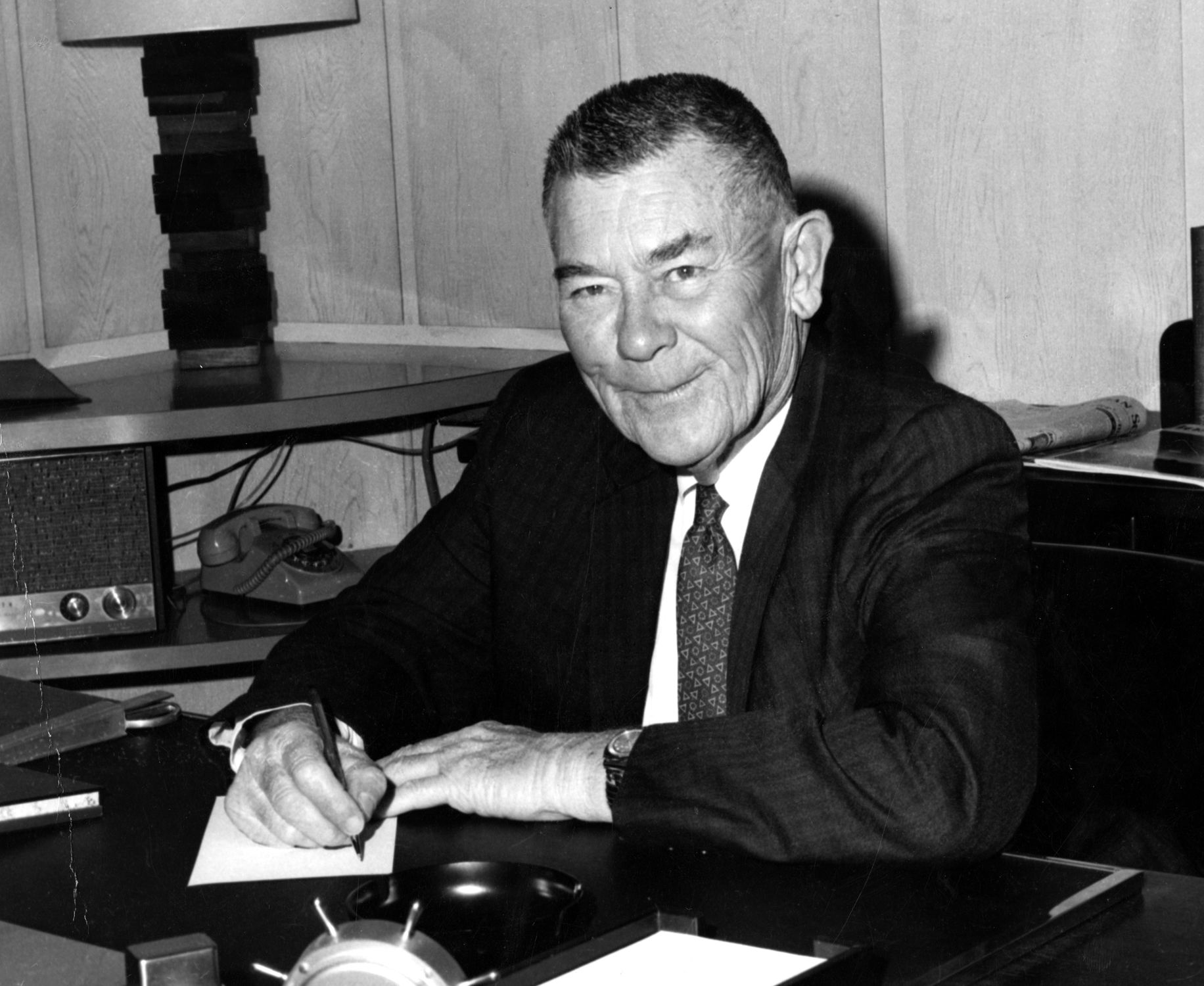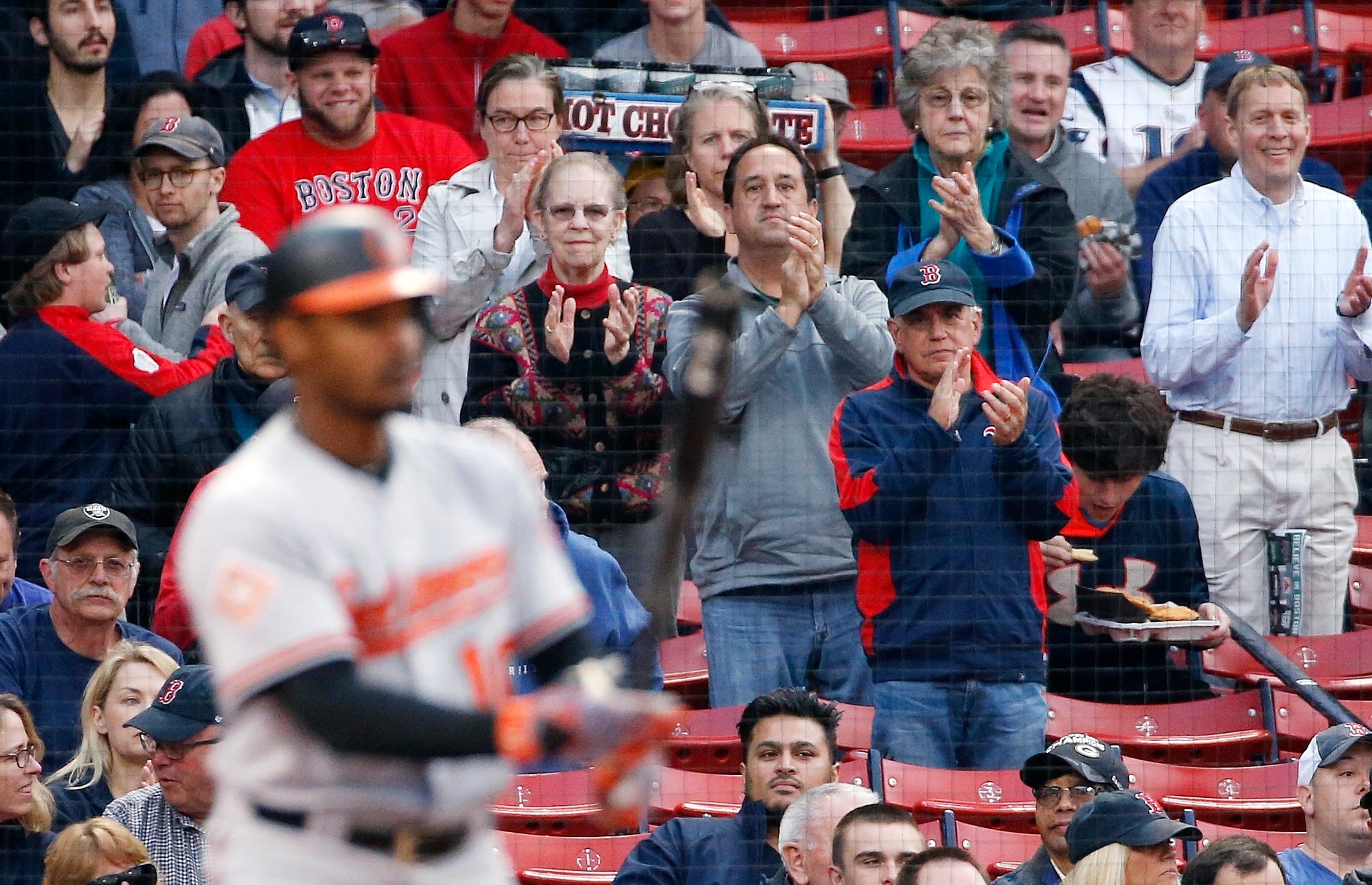A Dark Legacy
From its early days under infamous bigot Tom Yawkey, to its most recent hate crimes in Fenway Park, Beantown has a tawdry, complicated history with race and sport.
By Miguel Robles, University of Colorado Denver
Boston is often heralded as the bastion of American independence and liberty, while serving as the mecca of sporting excellence.
The Massachusetts metropolis is the city that harbored the revolutionary sons of liberty, as well as the city that won eleven NBA championships in twelve years, making it an inimitable icon of Americana. While Boston’s stadiums, the Boston Garden and Fenway Park, hold banners and memories as far as the eye can see, they have yet to escape the racism that has shamed the city since its inception.

After years of consistent problems in multiple stadiums, it’s clear that the issue is not just confined to a few overzealous fans who have had too much to drink. Boston has undergone a drastic demographic shift in the last forty years, going from 82 percent white in 1970, to less than 54 percent white today. It is also considered one of the more accepting areas of the country. As an intellectual town that plays host to universities such as Harvard, MIT and Boston College, to name only a few, and a metroplex, according to a recent Pew Research study, considered to be the fifth-most liberal big city in the country, Boston would seem to have an accepting culture on paper. On the other hand, the East Coast hub is one of the most segregated cities in the country, and a recent study found the Northeast, near the Boston area, and the South, to be the “most racist places in America.”
The recent headlines from Fenway Park, the home of the Red Sox, regarding racial slurs directed toward Baltimore Orioles center fielder Adam Jones, and those of a Sox fan being banned for life at Fenway for an unrelated, but similar, incident, show that racism is alive and well within U.S. sporting institutions. In fact, it has never left.
The American sporting industry is driven by its heated rivalries. While the Red Sox-Orioles rivalry doesn’t compare to the enmity of the Sox-Yankees rivalry, it’s had its fair share of testy moments, and with bitter rivalries comes vicious treatment from opposing fan bases. However, fans at Fenway all too often cross the line.
In the latest installment of the Orioles-Sox series, Fenway continued its dark saga with a disgraceful showing from Sox fans throughout the match-ups. The vitriol began after Red Sox pitcher Chris Sale tried to peg Orioles short stop Manny Machado with a 98-m.p.h. fastball, resulting in a post-game tirade from Machado.
In the same game, Adam Jones was the target of racial slurs, as many fans shouted the n-word at Jones and one fan even threw peanuts into the dugout at him. Sadly, this isn’t Jones’ first bout with racist fans. In a game against the San Francisco Giants, in 2013, a Giants fan threw a banana at Jones during the game, which was determined to be racially motivated. Despite such depredatory abuse, Jones referred to this most recent May night in Boston as “one of the worst” instances of racial abuse he’d received in his career. Unfortunately, Jones’ treatment exemplifies a league in which the acceptance for African Americans is tenuous at best.
Despite being the league that produced Jackie Robinson, only 7.7 percent of MLB rosters are African-American players. African-American players are a minority in baseball, and all too often feel like they don’t belong. Yet, at Fenway, African-American players have a heightened sense of animosity.
Across the years, numerous black players have expressed their distaste for playing in the park. In 2004, the infamous Barry Bonds refused to consider playing for the Red Sox, saying that the city of Boston was “too racist.” In 2008, former Angels outfielder Torrie Hunter described his trips to Boston as being full of hostilities, with fans chanting the n-word and throwing down beer and batteries. Yankees’ pitcher C.C. Sabathia reiterated the point in 2017, when he said he never received targeted racial slurs at any other ballpark other than Fenway, and that he and other black players expected racial slurs directed at them while playing in Boston.
That sense of racial discomfort isn’t limited to minority players on the field, as it all too often leaks out into the crowd as well. The night after Jones received the onslaught of racist chants, a man reported a fellow Red Sox fan saying the n-word in front of his six-year-old son. Calvin Hennick, a native white Bostonian, was bringing his biracial son and Haitian father in law to Game 3 of the Sox-Orioles series for his son’s birthday, when a Sox fan used a racial slur to describe the Kenyan women who performed the national anthem. The bigoted fan was promptly ejected from the game and banned from Fenway for life. That being said, it’s clear that the Red Sox organization is scrambling to deal with years of damaging prejudice in its illustrious stadium.
To truly understand this issue, you have to go back through the rich, yet tainted history of the Red Sox. From 1933-1976, the Sox were owned by Tom Yawkey, a man considered to be one of the most racist figures in baseball history. Yawkey, an American industrialist, prided himself on owning the last major league team to integrate African-American players in its roster. Yawkee’s appointed manager Michael “Pinky” Higgins infamously asserted there would be “no n****** on this ballclub.” The Red Sox didn’t have their first African-American player until they called up Pumpsie Green from the minor leagues in 1959, two years after the perennial Jackie Robinson retired. Unfortunately, Yawkey’s racist legacy followed the Sox after his death. Boston was late to sign an African-American free agent. They signed their first black player during the 1992 season, with the signing of Billy Hatcher, sixteen years after free agency began.

While the problem is clearly most prevalent at Fenway, a history of racism exists in Boston’s other professional stadium, the Boston Garden (which was demolished and replaced by the TD Garden in ’98), home of the Celtics and the Bruins. While the Celtics were ahead of their time, drafting the first African-American player, having the first all-black starting five and hiring the first African-American head coach, a sense of racism was ever-present. The man who acted as the Celtics foundation, both with his eleven championships as a player, and serving as the league’s first African-American coach, Bill Russell, described Boston as a “flea market of racism.” The racism the pioneering player underwent in the ’60s during his time as a player was well documented. Russell often underwent an internal struggle, as he received praise from a stadium often full of racist or intolerant fans.
In the ’80s, the blue-blood franchises of the Lakers and the Celtics controlled the NBA. While the two franchises seemed to trade NBA championships back and forth, the teams couldn’t have been more different. The showdowns featured the storied Celtics, led by the legendary Larry Bird, against their hated rivals, Los Angeles Lakers, led by the breathtaking Magic Johnson. Race rarely became a problem with the two teams itself, as Bird and Magic are close friends to this day. That being said, it’s impossible to ignore the impact that the annual showdowns of hometown Celtics, led by white Larry Bird, against flashy African-American superstars, Magic Johnson, James Worthy and Kareem Abdul-Jabaar, had on a city with such a bad track record in regard to racism. Bryon Scott, a point guard for the “Show-Time” Lakers in the ’80s, testified as to how poorly African-Americans players were treated in Boston, back in 2003. He even went so far as to say Boston still has yet to welcome players of color.
All of this, of course, is not to say that the city of Boston is inherently racist, nor is it to say that the majority of the people in Boston are racist, nor even to say that the problem hasn’t gotten marginally better. Rather, the point is that Boston has a deep-seated problem that is too prevalent to ignore. Boston is the classic tale of two cities—the city that has for years acted as the country’s “moral compass,” and the city that has yet to escape the issues left by its racist forefathers. It’s up to the future generation of Bostonians to decide which city they want to live in.










